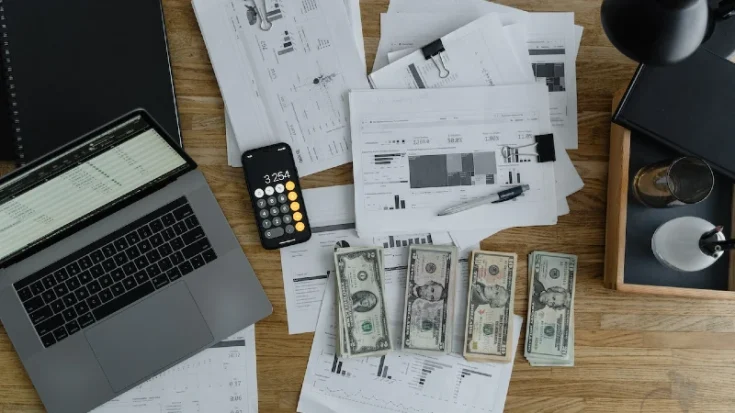Disclosure: This post may contain affiliate links, meaning we get a commission if you decide to make a purchase through our links, at no cost to you. Please read our disclosure for more info.
Last Updated on July 27, 2020 by Work In My Pajamas
The federal credit system is a puzzle that has the power to determine many of our biggest life choices. Your credit score can be negatively impacted by many factors in addition to failing to repay debt. Plus, having a decent credit score is required to affordably finance a car, rent an apartment, and even qualify for certain jobs.
Even if your balance was accrued out of financial necessity, it is possible to get out of the debt cycle and maintain a good credit score.
[button link=”https://mysb.us/creditkarma” type=”big” newwindow=”yes”] Check Credit Score For Free[/button]
Continue reading for five effective ways to improve your credit:
In This Post:
1. Set Payment Reminders
One of the easiest ways to tank your credit is to skip bill payments. Being just a few days late could shave points off your score.
This can often be avoided by setting alarms or reminders leading up to the due date. You won’t risk missing a payment, and you can also adjust your spending habits accordingly to stay within budget.
In most cases, this is a temporary solution and you’ll adapt to the new routine.
2. Watch Your Utilization Ratio
To minimize the impact debt has on your credit score, try to keep your total balance below 30 percent of your total credit limit. Your utilization rate is one of the largest influencers in your credit score.
An easy way to determine your utilization rate is to combine the values of all of your credit card statements over a yearly period, and divide the total by 12.
Having a low utilization score shows creditors and lenders that you are responsible with your money, and know how to manage it well.
3. Use Low-Interest Financing
Regardless of whether you’re carrying credit card debt or student loans, your interest rate plays the biggest part in determining what you’ll end up paying in the long run. Opting for lines of credit with lower interest rates is one of the best ways to reduce your final balance.
Easy-to-obtain credit such as high-interest credit cards and payday loans often entice borrowers by offering an appealing introductory rate. While you might have a 0% APR for a limited time, your rates can skyrocket as soon as your grace period ends.
Taking out an auto title loan is one way to reduce the amount you’ll owe, since you’re more likely to get a better interest rate compared to similar options.
For student loans, getting a student loan refinancing program at affordable rates is great for mitigating high interest rates from previous lenders which helps you pay-off your student loans much quicker. Use a student loan refinancing calculator to get the best rate.
Plus, you don’t have to forfeit any collateral or a deposit. You can continue to use your car, while also paying off your high-interest balances with a more sensible line of credit.
4. Keep Unused Cards Open
Once you’ve paid off a credit card balance, you might want to forgo the card altogether to prevent the same thing from happening again. But, cancelling your credit cards can actually harm your credit score.
Having more cards and less debt creates a positive utilization ratio. If you aren’t racking up annual fees or other costs to keep your card open, you might as well just leave it in the back of your wallet.
5. Be Selective When Opening New Accounts
Keeping your lines of credit open is different from opening new accounts, which can immediately bring your score down.
Having multiple hard inquiries can chip away at your credit in as little as two years.
Unless you absolutely need to, refrain from making hard inquiries such as financing for a car, qualifying for a personal loan, or getting mortgage quotes.
A negative credit score equates to a scarlet letter in the American economic structure. Stay ahead of the game and keep your credit from getting worse by applying these quick and easy tips.




